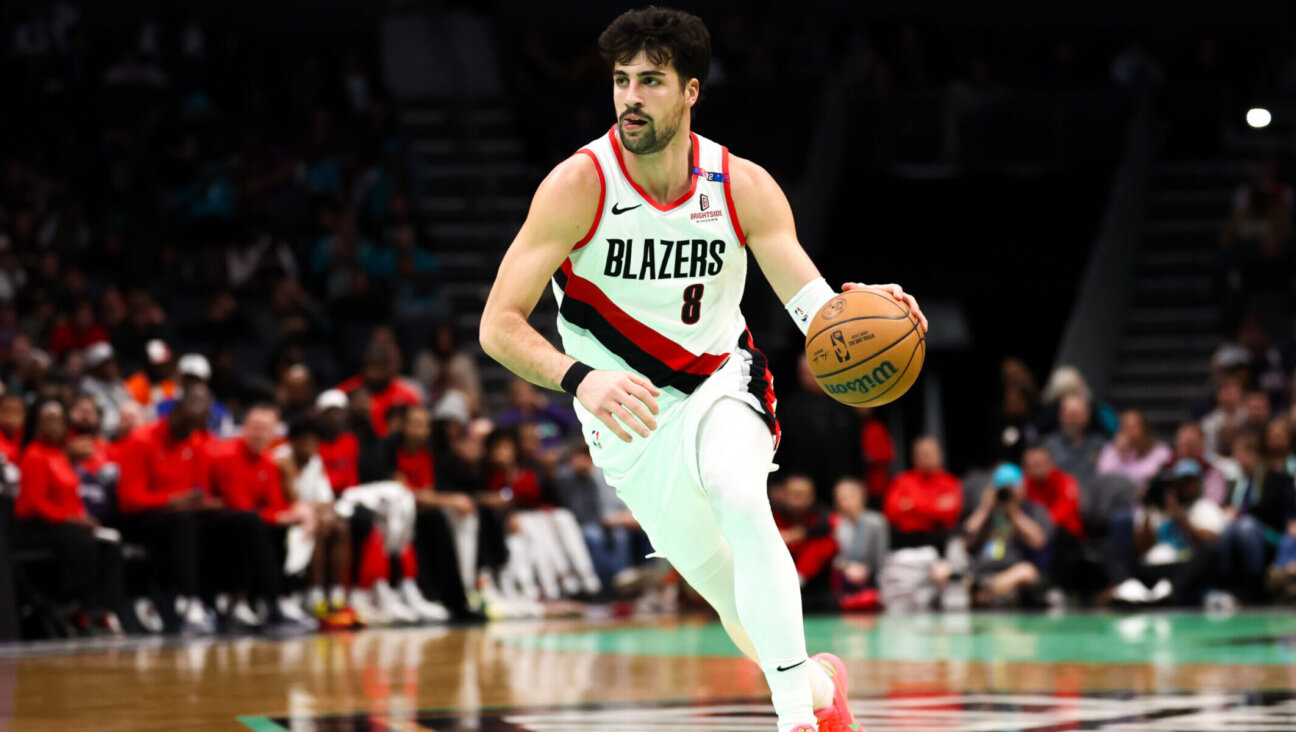Guantanamo Servicemen To Get Holiday Services
Muslim detainees at Guantanamo Bay may not give Rosh Hashanah a second thought. But if all goes as planned, a rabbi will visit servicemen stationed at the American base as the Jewish New Year begins.
Rabbi Melinda Zalma, a newly minted chaplain for the U.S. Navy, will be the sole chaplain during the High Holy Days. She will serve the Jewish servicemen stationed around the military base at the tip of Cuba. For the occasion she’s bringing a case of round challahs from Gertel’s Bakery, located in her neighborhood on the Lower East Side of Manhattan. As for honey, she predicted that the Rosh Hashanah staple would be provided by the base’s commissary.
Zalma, a 2003 graduate of the Conservative movement’s Jewish Theological Seminary, was expected to lead services and deliver a sermon. This would take place at the base, where the American military is housing suspected Al Qaeda and Taliban prisoners. She told the Forward that she planned to use the “Prayer Book for Jewish Personnel in the Armed Forces of the United States,” which was published in 1943. The prayer book, she said, probably represents “the last time that all the rabbis in America agreed on anything.”
The rabbi started training to be a chaplain in 1999, during her first summer at JTS, in what she originally assumed was “a good, very interesting summer job where I would meet other clergy.” In the end, she said, “what had me stay was the need to help these [soldiers] who were looking to serve God.”
Zalma has done some chaplaincy work during her training, but this is her first assignment since graduating earlier this year. When asked about the various reports of prisoner abuse at the base, Zalma said, “I don’t really have, right now, a response, because I know that the rumors that get spread don’t necessarily reflect the reality.”
While she’d originally hoped to serve in Iraq or Afghanistan during the High Holy Days, Zalma said she soon realized that to do so she’d need to take off more time than allowed by her day job as program officer of New York’s Jewish Outreach Institute.
The rabbi said that her sermon would focus on “connections between human beings” and on how those connections foster a greater understanding of God. Such a message, she said, speaks to the military’s mission in Guantanamo and elsewhere because “it’s very important to the U.S. that each person can connect to God in their own way.” She added that “when we can show that to other people, they’ll be on our side, because we’re on their side.”
She said that her sermon contains a particularly important message for those serving on a base that is housing the detainees, because in such a situation the military still could recognize the “right” and the “need” of the prisoners to “worship God in their own way.”
















